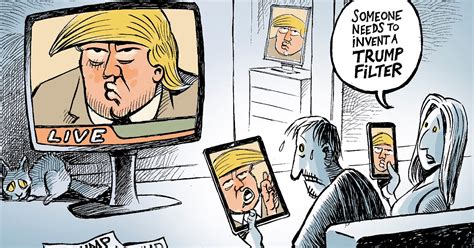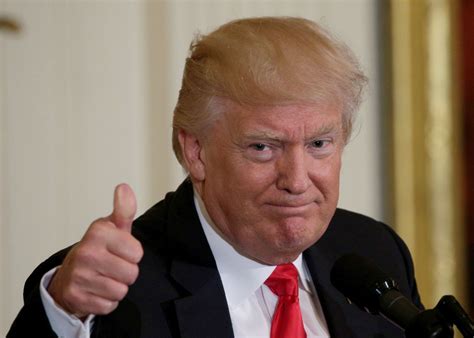1 / 20

2 / 20

3 / 20

4 / 20

5 / 20

6 / 20

7 / 20

8 / 20

9 / 20

10 / 20

11 / 20

12 / 20

13 / 20

14 / 20

15 / 20

16 / 20

17 / 20

18 / 20

19 / 20

20 / 20

❮
❯
7 Mind-Blowing Facts About Donald Trump's IQ You Won't Believe! (Spoiler: It's More Complicated Than You Think)
Donald Trump. The name alone evokes strong reactions, ranging from fervent admiration to vehement opposition. One aspect of his persona that's consistently debated, often fueled by speculation and conjecture, is his intelligence quotient (IQ). While a definitive, publicly available IQ score remains elusive, exploring the available information, including his actions, statements, and the opinions of those who've known him, paints a more nuanced picture than simple claims of genius or incompetence. This article delves into seven "mind-blowing" facts – or rather, perspectives – regarding Donald Trump's intellectual capabilities, aiming to dispel myths and encourage a more critical examination of the subject.
1. The Elusive IQ Score: A Mystery Shrouded in Secrecy
Unlike many public figures who occasionally boast about their high IQ scores (often with dubious authenticity), Donald Trump has never publicly released his IQ score. This lack of transparency fuels much of the speculation surrounding his intellectual abilities. While some claim he possesses an exceptionally high IQ, others point to his controversial statements and actions as evidence to the contrary. The absence of concrete data leaves the door open to interpretation and biases. This lack of transparency itself is, arguably, a "mind-blowing" fact – a stark contrast to the often self-promotional nature of his public image.
2. Cognitive Skills vs. Emotional Intelligence: A Crucial Distinction
It's important to differentiate between traditional measures of IQ, which often focus on logical reasoning, problem-solving, and verbal comprehension, and emotional intelligence (EQ). While there's no evidence to support a specific IQ score, observing Trump's business acumen, deal-making skills, and ability to connect with certain segments of the population suggests a potentially high level of emotional intelligence. He's demonstrably adept at understanding and manipulating emotions, a crucial skill in the realms of business and politics. This highlights the limitation of relying solely on a single numerical IQ score as a comprehensive measure of intelligence. Perhaps his success stems less from a stratospherically high IQ and more from a mastery of EQ.
3. The "Art of the Deal" and Strategic Thinking:
Trump's business career, while controversial, undeniably showcases a certain degree of strategic thinking. His ability to build a vast real estate empire, leverage media attention, and navigate complex legal battles suggests a capacity for planning, risk assessment, and adaptation – traits often associated with high intelligence, albeit a different kind than measured by standardized tests. However, critics argue that much of his success is attributed to luck, inherited wealth, and aggressive tactics that may not qualify as sustainable or ethical strategies. This highlights the complex interplay between inherent intelligence and environmental factors in achieving success.
4. The Power of Persuasion and Rhetorical Skills:
Love him or hate him, Trump is undeniably a master of rhetoric. His speeches, rallies, and tweets, while often controversial and factually inaccurate, consistently engage his base and command media attention. His use of populist language, emotional appeals, and repetition demonstrate skill in communication and persuasion – skills that are undeniably intelligent, even if they are employed to propagate divisive narratives. This showcases a different facet of intelligence – the ability to effectively communicate and influence large audiences, regardless of the message's factual basis.
5. The Role of Education and Experience:
Trump's educational background at the Wharton School of the University of Pennsylvania is often cited as evidence of his intellectual capabilities. However, the mere fact of attending a prestigious university doesn't automatically equate to exceptional intelligence. His business experience, while expansive, also presents a complex picture. While some view his successes as evidence of intellectual prowess, others see them as the product of privilege, shrewdness, and a willingness to take risks, regardless of ethical considerations. The impact of his education and experience on his overall intelligence remains a matter of debate.
6. Controversies and Cognitive Biases:
Trump's presidency was marked by numerous controversies, many stemming from his statements and actions. These controversies, some argue, reflect a lack of critical thinking skills, susceptibility to cognitive biases, and a disregard for factual accuracy. However, others suggest that these actions were strategically calculated, aiming to appeal to a specific segment of the population, regardless of the potential negative consequences. This highlights the potential pitfalls of evaluating intelligence based solely on actions perceived as controversial or unconventional.
7. The Subjectivity of Intelligence: Beyond the Numbers
The pursuit of quantifying Donald Trump's intelligence through a single IQ score is inherently flawed. Intelligence is a multi-faceted construct encompassing various cognitive abilities, emotional intelligence, practical intelligence, and creativity. Focusing solely on a numerical IQ score ignores the richness and complexity of human intellect. Furthermore, the interpretation of intelligence is often subjective and influenced by individual biases and perspectives. Therefore, any attempt to definitively assess Trump's IQ without considering the multifaceted nature of intelligence and the limitations of standardized tests is ultimately incomplete and potentially misleading.
Conclusion:
The quest to determine Donald Trump's IQ remains an intriguing, yet ultimately futile, pursuit. While the lack of publicly available information fuels speculation, a comprehensive understanding of his intellectual capabilities requires a nuanced approach that goes beyond a simple numerical score. His business acumen, rhetorical skills, and controversial actions all contribute to a complex and multifaceted picture of his cognitive abilities. Instead of focusing on a single, elusive number, a more productive approach involves critically evaluating the various facets of his intelligence, acknowledging the limitations of simplistic metrics, and recognizing the subjective nature of defining and interpreting intelligence itself. The "mind-blowing" fact, perhaps, isn't a specific IQ score, but rather the inherent complexity of understanding human intelligence itself.